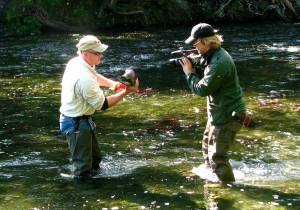Devotional: Day 2
“Men wanted for hazardous journey. Small wages. Bitter cold. Long months of complete darkness. Constant danger. Safe return doubtful. Honour and recognition in case of success. Difficulties are just things to overcome, after all.”
Ernest Shackleton (Captain of the Endurance)
“All this trouble is a clear sign that God has decided to make you fit for the kingdom.”
2 Thessalonians 1:5 (MSG)
One of the greatest stories of survival I have ever read is the story of the Imperial Trans-Antarctic Expedition (1914–16), also known as the Endurance Expedition. It’s considered the last major expedition of the Heroic Age of Antarctic Exploration. Born out of Sir Ernest Shackleton’s imagination and his thirst for adventure, the expedition was an attempt to make the first land crossing of the Antarctic continent.
Shackleton’s accomplishment as a leader started with his selection of the Endurance crew. He handpicked some members, including two who had served him faithfully and performed exceptionally on a previous expedition. To recruit the rest, it is said that he posted the following notice about the difficult circumstances that lay ahead:
“Men wanted for hazardous journey. Small wages. Bitter cold. Long months of complete darkness. Constant danger. Safe return doubtful. Honour and recognition in case of success.”
Shackleton’s recruitment notice was brutally honest about the discomforts and dangers to be faced. When the Endurance crew members indeed encountered all of the above-mentioned conditions, they accepted them as best they could, for they had been forewarned.
Eventually the Endurance became trapped in pack ice and crushed, and finally sank, stranding her 28-man crew on the ice. Shackleton’s calm and confidence in the more dire circumstances were heartening to his crew. Commenting on Shackleton’s reaction to their inability to free the Endurance from the ice, Alexander Macklin, the ship’s doctor, said, “It was at this moment Shackleton showed one of his sparks of real greatness. He did not … show … the slightest sign of disappointment. He told us simply and calmly that we would have to spend the winter in the pack.”
After months spent in makeshift camps as the ice continued its northward drift, the party took to the lifeboats to reach the inhospitable and uninhabited Elephant Island. Embracing reality, Shackleton made the difficult and dangerous choice to take 5 of his 28-man crew on an 800-mile open-boat journey in a lifeboat to reach South Georgia. That treacherous trip would eventually lead to the rescue of his entire crew and bring to an end their 22-month Endurance expedition. Adversity drove these men to defeat the unimaginable.
The Apostle Paul endured his own trials and suffering. He was beaten, jailed, flogged, stoned, shipwrecked, immersed in the open sea, and exposed to the desert sun and to the cold. He faced ocean storms, had many sleepless nights, missed countless meals, had to perform hard labor, and was betrayed by his closest friends. Yet Paul showed great endurance in service, and he understood difficult circumstances. He knew the power of Christ in him. No storm could knock him off course because his faith was anchored.
Endurance does not just mean putting up with difficulties and accepting them with a “religious Eeyore” attitude. It means, rather, confidently and cheerfully rising to the challenge difficulties pose. It is the attitude of an ocean explorer in a storm who shouts into the wind, “Let it blow!” It is the fortitude of the disabled war veteran struggling through the pain of rehab who growls, “Bring it on.” It is the resilience of a cancer patient laughing at the enemy, “Go ahead – kill me! The first face I’m going to see is Jesus, ‘for to me, to live is Christ, and to die is gain!’” (Philippians 1:21 NIV)
Explore
. . . “For I am convinced that neither death nor life, neither angels nor demons, neither the present nor the future, nor any powers, neither height nor depth, nor anything else in all creation, will be able to separate us from the love of God that is in Christ Jesus our Lord.” (Romans 8:38-39 NIV)



